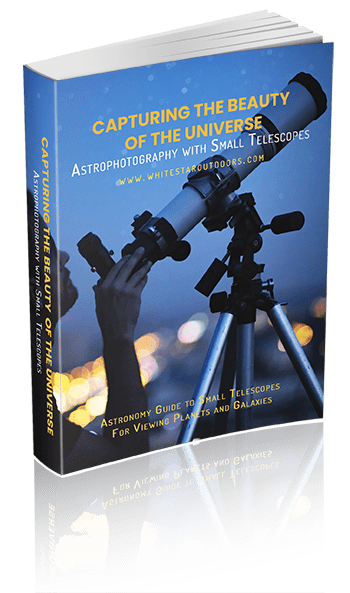Welcome to the enchanting world of Astronomy 101! Whether you’re gazing up at the night sky with a sense of wonder or peering through your first telescope, you’ve embarked on a journey to unlock the mysteries of the universe. Astronomy is not just a science; it’s a timeless and gratifying hobby that beginners of all ages and backgrounds can enjoy.
In this introductory Astronomy 101 guide, we will take you on a voyage through the cosmos, from the basics of stargazing to the wonders of our solar system, the stars that light up our night sky, distant galaxies, and beyond. We’ll equip you with the knowledge and tools you need to explore the night sky, understand the celestial objects that grace it, and kindle your curiosity for the boundless realms of space.
You don’t need a degree in astrophysics or a high-tech observatory to get started. With a few essential concepts, some simple equipment, and a dash of patience, you can embark on an incredible journey of discovery. Along the way, you’ll learn about the history of astronomy, the scientific principles that underpin the cosmos, and the captivating stories of celestial objects that have fascinated humanity for millennia.
So, whether you’re looking to identify constellations, observe the planets, or delve into deep-sky objects, Astronomy 101 is here to guide you step by step. By the time you’ve completed this introductory guide, you’ll have the foundation to explore the night sky with confidence, engage in stargazing as a hobby, and contribute to our collective understanding of the universe.
Let’s begin our voyage into the cosmos, where the mysteries of space await your exploration, and the beauty of the night sky is ready to inspire you. Buckle up, aspiring astronomer; your cosmic adventure is about to commence!
Astronomy 101 is the start of a fascinating and rewarding hobby for beginners (and people of all levels) for several compelling reasons:

- Sense of Wonder:
Sense of Wonder:
The Astronomy 101 guide allows you to explore the universe and ponder the vastness and beauty of space. Gazing at celestial objects can evoke a profound sense of wonder and awe, connecting you to the cosmos in a unique way.
Accessible to All:
You don’t need any prior experience or specialized knowledge to get started in astronomy. Anyone can enjoy stargazing, whether you’re a child or an adult, living in the city or countryside.
Low Cost of Entry:
While there are high-end telescopes and equipment available for serious astronomers, basic stargazing can be done with just your eyes or with relatively inexpensive binoculars or telescopes; it makes it accessible to a wide range of budgets.
Endless Exploration:
The universe is vast, and there is always something new to discover. You can spend a lifetime exploring different celestial objects, including stars, planets, galaxies, nebulae, and more.
Educational Value:
Astronomy 101 is a great way to learn about science, physics, and the natural world. It can teach you about the fundamental principles that govern the universe, such as gravity, light, and motion.
Connection to History:
Astronomy has a rich history, and many famous scientists and astronomers have made groundbreaking discoveries in this field. By exploring the same night sky, you can connect with the scientific heritage of humanity.
Mental Relaxation:
Stargazing can be a peaceful and meditative activity. Providing a chance to disconnect from daily life, reduce stress, and relax under the night sky.
Photography and Astrophotography:
Astronomy can be combined with photography to capture stunning images of the night sky. Astrophotography opens up new creative possibilities and allows you to share your observations with others.
Observing Challenges:
Astronomy offers various observing challenges, such as tracking planets, identifying constellations, or hunting for elusive deep-sky objects. These challenges can keep your interest and skills sharp.
Personal Growth:
The patience, attention to detail, and problem-solving skills required in astronomy can contribute to personal growth and development. It can teach you perseverance and how to overcome challenges.
Connection to Seasons:
Astronomy is a hobby that varies with the seasons and time of night, encouraging you to become more aware of the natural rhythms and patterns of the Earth and sky.
Embarking on a Cosmic Journey:
Here’s a step-by-step guide on where to start:
Learn the Basics:
Begin by familiarizing yourself with basic astronomical concepts. You can find introductory books, online resources, and courses that cover topics like the solar system, stars, galaxies, and the universe’s scale.
Stargazing Equipment:
Start with the naked eye. You don’t need a telescope or binoculars to enjoy stargazing initially. Learning to identify constellations and stars with your unaided eyes is a significant first step.
Binoculars:
If you want to enhance your stargazing experience, invest in a good pair of binoculars. They can reveal more detail in the night sky, including star clusters and some nebulae. Review binoculars with a larger objective lens (e.g., 10×50) for better low-light performance.
Telescope (Optional):
Once you’re comfortable with binoculars, consider getting a telescope. Start with a beginner-friendly model that’s easy to set up and use. Popular choices for beginners include Dobsonian telescopes and refractor telescopes.
Star Maps and Apps:
Use star maps or astronomy apps to help identify celestial objects. Apps like SkySafari, Star Walk, or Stellarium can show you what’s visible from your location on any given night.
Join an Astronomy Club or Forum:
Connecting with other amateur astronomers can be incredibly helpful. Joining a local astronomy club or online forum can provide you with valuable advice, observing tips, and a sense of community.
Observing Sessions:
Plan regular observing sessions. Find a dark spot away from city lights, and bring your binoculars or telescope. Be patient and take your time to explore the night sky.
Learn the Constellations:
Start by learning a few constellations at a time. Once you’re comfortable identifying them, move on to more challenging ones. Constellations serve as your roadmap to the stars.

- Supurb viewing for beginners
Study the Moon:
The Moon is a superb target for beginners. Its phases change visibly over time, and you can observe its surface features with binoculars or a telescope.
Explore Planets:
Planets like Jupiter and Saturn are visible with binoculars or a small telescope. Observing their moons and rings can be awe-inspiring.
Deep Sky Objects:
Gradually explore deep sky objects like star clusters, nebulae, and galaxies. Some are visible with binoculars, while others may require a telescope and dark skies.
Read and Learn Continuously:
Astronomy 101 is the beginning entry to a vast field, so continue to read books, watch documentaries, and follow the latest developments in space exploration to deepen your knowledge.
Attend Stargazing Events:
Check for local stargazing events or star parties in your area. These gatherings often feature experienced astronomers and a variety of telescopes for public use.
Document Your Observations:
Keep a stargazing journal to record your observations, noting the date, time, location, and what you saw. It can help you track your progress and improve your skills.
Stay Patient and Have Fun:
Astronomy 101 is the start of a lifelong learning experience. Take your time with initial challenges. Keep exploring, and most importantly, have fun!
Remember that astronomy is a hobby that can be as simple or as complex as you choose to make it. Whether you’re casually stargazing or diving deep into astrophotography and scientific research, there’s something in the night sky for everyone to enjoy.
Telescopes for Beginner Stargazers.
Telescopes for beginners should strike a balance between ease of use, affordability, and capability. Here are some key considerations and specific telescope recommendations for beginners:
Telescope Types:
There are primarily three types of telescopes for beginners: refractors, reflectors, and compound telescopes (catadioptrics).
Refractor Telescopes:
These use lenses to bend and focus light. They are simple to set up and require less maintenance. Refractors are suitable for lunar and planetary observation but tend to be more expensive for larger apertures.
Reflector Telescopes:
These use mirrors to collect and focus light. They are often more affordable than refractors with larger apertures, making them suitable for deep-sky observations. However, they may require occasional collimation (alignment of mirrors).
Compound Telescopes:
These combine lenses and mirrors, offering a compromise between refractors and reflectors. They are known for their compact design and good image quality. The most common type is the Schmidt-Cassegrain.
Aperture Size:
Aperture size (the diameter of the primary lens or mirror) is a critical factor in a telescope’s light-gathering ability. Beginners should look for telescopes with apertures of at least 70mm (2.8 inches) for refractors and 4 inches for reflectors or compound telescopes.
Mount Type:
Telescopes come with various mount types, including alt-azimuth (up and down, left and proper movement) and equatorial (aligns with the Earth’s axis for easier tracking of celestial objects). Beginners often find alt-azimuth mounts more intuitive to use.
Portability:
Consider the portability of the telescope, especially if you plan to take it to different observing sites. Smaller, lightweight telescopes are more accessible to transport.
Accessories:
Look for telescopes that come with essential accessories like eyepieces, finderscopes, and tripod stands. These can enhance your observing experience and save you from purchasing additional equipment right away.
Cost:
Telescopes can vary significantly in price. Beginners should set a budget and look for telescopes within that range. Quality telescopes are available at various price points, so it’s possible to find a suitable option for your budget.
Recommended Telescopes for Beginners:
Here are a few popular telescope models often recommended for beginners:
Celestron PowerSeeker 127EQ:
It is a 5-inch reflector telescope on an equatorial mount. It provides a decent aperture for deep-sky observation and planetary viewing.
Orion StarBlast 4.5 Reflector:
A tabletop reflector with a 4.5-inch aperture, it’s easy to use and offers good views of the Moon, planets, and some deep-sky objects.
Sky-Watcher Heritage 130P:
It is a tabletop 5.1-inch reflector telescope known for its portability and affordability. It’s suitable for both beginners and more experienced users.
Celestron NexStar 4SE:
If you prefer a compact, computerized telescope, the 4SE is a 4-inch Maksutov-Cassegrain telescope with a motorized mount for automatic tracking of celestial objects.
User Reviews and Recommendations:
Before purchasing a telescope, read user reviews and seek recommendations from experienced astronomers or astronomy forums. Real-world experiences can help you make an informed choice.
Learning and Support:
Look for telescopes from reputable manufacturers that offer good customer support and educational resources for beginners. It can be valuable if you have questions or encounter issues with your telescope.
Remember that learning to use a telescope effectively takes time and practice. Be patient, and start with more straightforward targets like the Moon and bright planets before moving on to more challenging deep-sky objects. Additionally, consider joining a local astronomy club or online community to connect with others who can provide guidance and share their experiences.
In summary, the Astronomy 101 guide offers a unique starting point for a blend of science, beauty, and wonder that can captivate and inspire beginners and enthusiasts alike. It’s a hobby that encourages exploration, learning, and a deep appreciation for the cosmos, making it a gratifying pursuit.







